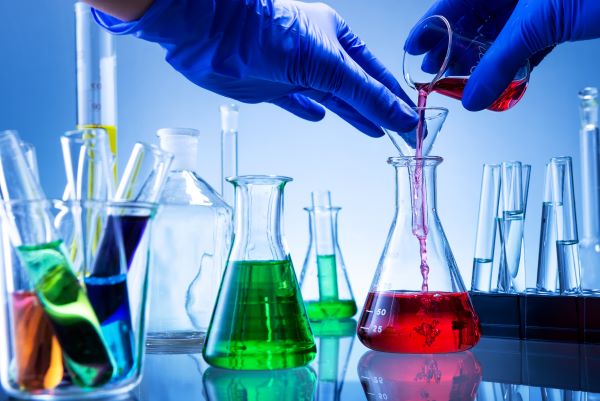If you want to be a physician or surgeon, there’s only one way to make your dream a reality: go to medical school. Neither medical school itself nor getting into an MD (Doctor of Medicine) or DO (Doctor of Osteopathic Medicine) program is easy.
Before you can start figuring out which medical specialty to pursue, you need to give some thought to the undergraduate degree that prepares you for taking on the challenge of going to med school.
RELATED: Which Degree Do You Need to Become a Doctor?
The Undergraduate Degree Required for Getting Into Medical School
Medical schools award doctoral-level degrees (and, sometimes, graduate-level degrees like master’s degrees). Before you can begin your studies at this level, you need to complete your undergraduate degree.
An associate’s degree from a community college won’t suffice. You need a baccalaureate or bachelor’s degree if you want to go to medical school.
An undergraduate degree program typically requires at least 120 credits of undergraduate college study and takes four years of full-time study. Some students begin their studies at community colleges, where they pursue an associate’s degree before transferring to a four-year school to finish their bachelor’s degree program.
RELATED: Do People Planning to Attend Med School Often Have a Master’s in Biology?
Prospective medical students should make sure that they earn their undergraduate degree from a school that has institutional accreditation from one of the regional, rather than national, accrediting bodies.
Medical School Prerequisite Courses
Developing a level of knowledge of a wide array of subjects is valuable, in and of itself, for becoming a well-educated individual (as a doctor should be). However, when it comes to preparing for medical school specifically, the most important aspect of earning an undergraduate degree is completing the prerequisite courses needed for medical school.
Prerequisites are courses that students must have already taken in order to enroll in a more advanced course or program of study.

Most of the prerequisite courses for medical school are laboratory science courses like biochemistry, general and molecular biology, chemistry, biochemistry, human anatomy and physiology. Physics and mathematics courses are also common med school prerequisites. Students may also be required to have completed courses in the humanities and the social and behavioral sciences.
The prerequisite coursework for medical school prepares students for the challenging curriculum they will face next. The basic science coursework that medical school students complete during their first “didactic” years of study builds off of the foundational studies of natural and physical science completed during their undergraduate education.
Once students get into their clinical years of medical school and their residency training and clinical practice, they apply those scientific principles to the real world, diagnosing and treating patients’ medical conditions.
Pre-Medical Programs of Study
If you have been seriously considering medical school, there’s a good chance that you have heard of pre-med – pre-medicine or pre-medical – studies. Many students are surprised to find that there actually isn’t a pre-med major. Rather than there being one pre-med major, pre-med students come from a variety of majors and complete an academic track that is specially designed to prepare students to meet their medical school prerequisites.
Common Courses in a Pre-Med Curriculum
What classes are commonly found in the curriculum of a pre-medical track? While each school’s pre-med track may vary somewhat, most pre-med sequences include laboratory courses in general biology, biochemistry, general chemistry, organic chemistry and physics, as well as math courses in calculus or statistics.
The courses students take to align with a pre-med academic track can also count toward their major coursework, their general education coursework, or their electives.
The Top Medical Majors in College
As long as they complete the prerequisite courses – typically by completing a pre-medicine track – an aspiring medical school student really can major in any subject.
Are Some Medicine Majors Better Than Others?
Conventional wisdom suggests that students intending to go to medical school should major in biology. However, the American Medical Association (AMA) has reported that no specific college majors give medical school candidates a significantly better likelihood of getting accepted compared to other programs of study.
RELATED: Top 25 Medical Schools
As long as you complete classes in fields like biology, chemistry, physics, anatomy and physiology, you should be prepared for the challenges of graduate school and a medical degree.
Still, some medical majors are more popular or simply more relevant to the health care field and patient care practices than others. If you’re interested in working in a clinical role in human health care, possible medical majors in college to consider include any of the following 15 programs of study.

1. Biology or Biological Sciences
Biological science, or the science concerned with the study of life and living things, is consistently the most popular of all college majors among students who matriculate into medical school. According to the American Medical Association [link], 12,845 of the 22,239 tracked students who enrolled in medical schools across the United States in 2020 were biological science majors as undergraduates.
Do Medical School Applicants Have to Major in Biology?
The fact that more than half of medical school students have an undergraduate biology degree may put pressure on aspiring doctors to declare this major. However, the American Medical Association cautions that, statistically speaking, applicants with a biology background don’t have a competitive edge over candidates who pursue other undergraduate majors.

More biology majors seem to apply to medical school than students from other backgrounds, but that doesn’t mean they get accepted.
Applicants with an undergraduate degree in biological science had a matriculation rate of 40% — not insignificant, but, as the American Medical Association noted, “lower than several other primary majors.”
In fact, even though knowledge of biology is critical for achieving a good score on the Medical College Admission Test (MCAT), biological science majors don’t perform exceptionally well on this standardized test, statistically speaking. The average MCAT score among biology majors was “in the middle of the group” of the different undergraduate majors for which the AMA has data.
In other words, biology is an excellent choice of major for aspiring doctors because biology coursework is directly relevant to the medical field – and the most popular major among students admitted to medical schools – but students shouldn’t view the program of study as the only choice worth considering.
Biology Degree Curriculum
When you major in biological science, you will devote a considerable amount of your studies to laboratory courses. Students majoring in biology take classes in general biology, cell biology, molecular biology, genes and genetics, organisms and ecosystems, ecology, evolutionary biology and biochemistry.
2. Physical Sciences
Among the majors distinguished in the report by the Association of American Medical Colleges (AAMC), as cited by the American Medical Association, the second most popular field of study is physical science. Around 2,240 matriculated medical school students had an undergraduate background in medical majors in the physical sciences, accounting for around 10% of medical students.
Rather than earning a degree with the title of physical science, you are likely to graduate with a bachelor’s degree in one of the specific disciplines that fall under the field of physical science. The field of physical science encompasses all of the natural sciences concerned with non-living systems, including physics, chemistry, astronomy and geology.

Physical Science Degree Curriculum
Physics and chemistry are both branches of science concerned with the study of matter. Physics focuses on motion, energy and force. Chemistry is concerned with the properties of the substances that make up matter and their interactions.
Physics majors should expect to take classes in experimental physics, computational physics and contemporary physics. Coursework in thermodynamics is important, as are courses in classical mechanics, statistical mechanics and quantum mechanics. By the end of their studies, physics students should be familiar with electricity and magnetism, electromagnetic fields, waves, vibrations and optics.
Chemistry majors commonly take courses in general chemistry, organic chemistry, inorganic chemistry, physical chemistry, analytical chemistry and biochemistry. Chemistry-specific courses may also pertain to methods of quantitative analysis and instrumental analysis used in the field.
Some schools offer specific majors in biochemistry, either through the chemistry department or the biology department. Biochemistry major courses include a mix of science courses in these two disciplines, including cell biology, genetics, physiology, general chemistry, organic chemistry, physical chemistry and biochemistry.
Astronomy and geology are related but opposing areas of study. Astronomy is the study of celestial bodies and objects, or objects outside the Earth’s atmosphere, like planets, stars and other objects in space. Geology is the discipline concerned with the study of the Earth, including its physical structure, the physical processes that occur on Earth and the history of its structure.
Students of astronomy take classes in planetary astronomy, solar systems astronomy, stellar astrophysics, galactic and extragalactic astrophysics, planetary science, habitable worlds and general physics. Geology majors can expect to take courses in geology fundamentals, structural geology, geophysics, geodynamics, mineralogy, sedimentology, paleontology, petrology and field geology.
RELATED: What Degree Do You Need to Be an Astrophysicist?
What makes any of these majors that fit within the field of physical science a good choice for aspiring physicians is the focus on scientific thinking. Students in any of these fields learn the scientific method of inquiry upon which medical practices are based.
3. Health Sciences
Many schools offer undergraduate majors in the field of health sciences. Health sciences may seem like a major that is made for the medical field, but in fact, only 784 of the 22,239 medical school students tracked in the American Medical Association had majored in specialized health sciences. That amounts to only about 3.5% of medical school students who major in the health sciences.

Most health science majors do work in the field of health care, but they don’t hold doctor roles. Instead, these healthcare majors often work as technicians, administering tests, medications or other therapeutic interventions in a healthcare setting under the guidance of doctors and other highly trained medical professionals.
Health Science Degree Curriculum
The curriculum of a health science major includes coursework in health care systems administration and ethics, anatomy and physiology, health science issues and research, health assessment, statistics, epidemiology, health education promotion, disease prevention and pathophysiology.
Students of health science should also expect to build a foundation of coursework in biology and chemistry.
4. Medical Technology
If you’re less interested in the administration side of the health care system and more interested in doing the hands-on technical work required in clinical practice, you might prefer undergraduate programs in medical technology.
Generally, these healthcare programs are more focused on preparing students to work in a medical technologist or technician role in clinical practice. Medical technologist and technician career paths include phlebotomist, radiologic technologist, surgical technologist and cardiovascular technologist.
A student who pursues an undergraduate degree in medical technology has the option of going straight into a medical technician or technologist role in the workforce or continuing their education by applying to med school.
Medical Technology Curriculum
Students in a medical technology degree program often begin their curriculum with a sequence of courses in both biology and chemistry. Classes in immunology, hematology, clinical microscopy, bioethics, healthcare management and the methods used in medical technology are an important part of the curriculum. Clinical experience is critical for students in this undergraduate degree program.
5. Nursing
Nurses and doctors approach clinical practice from very different models, but both of these healthcare professions involve patient care to some extent.
One benefit of being a nursing student is having the opportunity to explore the nursing model of providing care. Generally, the nursing model of care is more holistic, concerned with the well-being of the whole patient, while the medical model emphasizes disease, diagnosis and treatment. If you find that you like the nursing model, you can stick with it, becoming a registered nurse (RN) and, if desired, advancing to the role of nurse practitioner.
Alternatively, if you do decide to apply to medical school, your clinical nursing education provides valuable healthcare experience. You may also be better positioned to put patients at ease and meet their emotional as well as physical needs because of your training in the patient care practices found in the nursing model.
Nursing Degree Curriculum
Nursing students take classes in human anatomy and physiology, human development, health assessment, pharmacology, pathophysiology and nutrition. A foundation in science, including chemistry, general biology, microbiology and genetics, is necessary for preparing for a nursing career.
Much of a nursing degree program emphasizes practical skills for clinical work through courses in the essentials of nursing practice and clinical experience providing nursing care in specialties such as psychiatric health, women’s health and obstetrics, pediatrics and gerontology.
RELATED: The Top 10 Highest Paying Medical Specialties
Coursework for nursing students might also include research methods in nursing practice, statistics for health care research, health policy and healthcare leadership.
6. Biomedical Engineering
Engineers use the principles of science and mathematics to solve problems, and biomedical engineers, specifically, apply these practices to the design of solutions pertaining to the medical field. The science courses required for engineers tend to align with medical school prerequisites.

If you choose to major in biomedical engineering as an undergraduate, you can explore the world of biomedical innovations. As you near the end of your bachelor’s degree curriculum, you can decide whether to pursue careers in engineering design or apply to medical school so you can treat patients in clinical practice.
Either way, you get to help people – the difference being whether you provide that help directly in clinical practice, as a physician, or indirectly as the inventor of medical devices, processes and therapies used to diagnose and treat health conditions.
Biomedical Engineering Curriculum
Students of biomedical engineering complete extensive studies in biology, including human physiology, cell biology, molecular biology, genetics and biochemistry. Major coursework will focus on the principles and practices of biomedical engineering design, including modeling in biomedical design, experimental design in biomedical research and biomedical ethics and law.
Students will also have the opportunity to complete courses in the areas of biocomputation, biomaterials, biomechanics and biosignals. Hands-on design experience is particularly important for biomedical engineering students, who will often complete studio design project courses in the later years of their undergraduate education.
7. Public Health
Most students attend medical school with the intention of working in clinical practice as a physician or a surgeon, but you can also use a medical school education to further public health efforts.
Pursuing a public health major is an increasingly popular move among pre-medical students, Oregon State University reported. In fact, some medical majors make an extra effort to complete a Master of Public Health degree alongside their medical doctorate degree during medical school.
An undergraduate major in public health might appeal to you if you have an interest in community health, infectious disease outbreaks, disease prevention or preventive medicine. As a medical major, public health degree programs tend to include fewer laboratory science courses, but they do cover scientific research methods and provide valuable insight into public health issues and obstacles individuals may face in getting healthcare services.
Public Health Degree Curriculum
Some of the classes you might take in this undergraduate degree program include public health principles, public health law and ethics, health and human rights, environmental and occupational health and health disparities. Students should expect to develop a thorough understanding of the U.S. and global public health systems, now and throughout history. Courses in epidemiology are common, as are classes pertaining to leadership in the public health field.
8. Health Informatics or Medical Informatics
Computer technology is an important part of the medical field today. If you’re interested in the computer science side of medicine, consider pursuing an undergraduate degree in health informatics or, more specifically, medical informatics.
Medical informatics is an interdisciplinary field that focuses on the use of information science and information technology principles and practices to better understand and improve the field of healthcare. You don’t need an extensive background in health informatics to apply to medical school, but these and similar college majors can help you be prepared to maintain patient records using electronic medical records or engage in clinical research efforts.
Health Informatics Degree Curriculum
In a degree program in health informatics, the courses most closely related to a medical major include medical terminology, medical coding and classification, the foundations of pharmacology, human anatomy and physiology, healthcare enterprise systems, healthcare data systems architecture and concepts and practices of healthcare informatics.
Other coursework in the program focuses more on the computer science and information technology side, with classes like system analysis and design, information security, database management systems, human-computer interactions, application programming and hardware and software in information science. Business courses, such as financial principles and the principles of macroeconomics, may also be part of the curriculum.
Students who choose this undergraduate major to prepare for medical school should make sure that they are also taking enough laboratory science courses to meet medical school prerequisites.
9. Psychology
Unless their interests lie in the field of psychiatry, medical school applicants may be tempted to write off a major like psychology. However, there is a great deal of value in studying what drives thought and behavior – in any career and, in particular, in a medical career.
Psychology can be considered both a natural science and a social science. Studying psychology can help students develop their understanding of the scientific method, which is the foundation for medical research.
Being familiar with how people think and act can help you better communicate with patients effectively. Majoring in psychology can be a particularly smart move if you are interested in a medical specialty related to mental health, like psychiatry, or to the brain, like neurology.
Psychology Degree Curriculum
In an undergraduate degree program in psychology, students should expect to study the introductory foundations of psychology, research methods in psychology, methods of psychological testing and the principles of developmental psychology, social psychology, abnormal psychology, clinical psychology, biological psychology and cognitive psychology.
Many courses in psychology are beneficial to future doctors in a variety of specialties. For example, if you want to be a neurologist, the study of human neuropsychology is particularly relevant. Studying the psychology behind drug and alcohol abuse is valuable if you intend to help patients with substance abuse disorder.
Knowledge of child psychology is beneficial for aspiring pediatricians. You might benefit from studying behavior modification if you want to work with patients who have been diagnosed with autism spectrum disorder.
10. Social Sciences
Nearly 9% of matriculated medical school students – 1,991 out of 22,239 students – majored in the social sciences, according to the American Medical Association. Although social science majors might not seem ideal for a medical career, researchers have concluded that medical school applicants with this background (or a degree in the humanities) “may be more effective at communicating with patients,” the American Medical Association reported.
Social Science Majors
Aside from psychology, the social science majors include sociology, anthropology, history, geography, economics and linguistics.
11. Dental Hygiene
A degree in dental hygiene can prepare you to work as a dental hygienist, but you could also use this background to prepare for further schooling. Dental school may seem like a better fit than medical school for those with a dental hygiene background, but getting into dental school with this undergraduate degree is still possible, provided that you meet medical school prerequisites.
Students considering this background should choose a bachelor’s, rather than associate’s, degree program and incorporate extra coursework in science.
Dental Hygiene Degree Curriculum
In a dental hygiene program, students take classes in human physiology, dental anatomy, periodontics, radiology, pharmacology and community health, as well as clinical experience in dental hygiene.
12. Environmental Science
Environmental science is a good medical major to consider when you want an undergraduate degree in something slightly different from biology. A background in environmental science is particularly valuable if you have an interest in clinical research in the area of environmental health.
Environmental Science Curriculum
An undergraduate degree program in environmental science will consist of an interdisciplinary curriculum that includes studies in biology, chemistry, geology and physics.
Major-specific coursework for an undergraduate degree in environmental science includes the foundations of environmental science, ecology, biological life diversity, soil science, pollution, geology, air and water in environmental systems and environmental ethics and policy.
13. Exercise Science
Aspiring sports medicine doctors should consider a degree in exercise science/kinesiology as a potential medical major.
Sports medicine is the medical specialty concerned with physical fitness and the treatment of sports-related injuries. Exercise science, the study of physical movement, is a particularly relevant undergraduate degree for sports medicine doctors.

Exercise Science Degree Curriculum
An undergraduate exercise science program includes coursework in human anatomy and physiology, kinesiology, emergency care practices, basic motor learning and exercise physiology. Exercise science students learn both theory and application through courses in exercise assessment, theories in strength and conditioning and leadership in aerobic and anaerobic exercise.
14. Athletic Training
Like exercise science, athletic training is one of the healthcare majors that appeal particularly to aspiring sports medicine doctors. Practitioners in the field of athletic training are not doctors, but they are health care professionals involved in examining, diagnosing, treating, rehabilitating and – ideally – preventing health conditions arising out of physical activity.
Athletic Training Degree Curriculum
Students in an athletic training program take classes in human anatomy, exercise physiology, kinesiology, biomechanics of movement, injury care and prevention, therapeutic modalities and techniques, clinical evaluation of injuries and strength coaching.
Not all athletic training programs include enough science coursework to meet medical school prerequisites, so prospective med school applicants should take extra courses in biology, chemistry, physics and mathematics.
15. Humanities
The humanities – subjects like a foreign language, communication, English and writing – haven’t historically been considered the best medical majors in college. These undergraduate majors don’t have obvious ties to science or the health care field.
However, humanities majors, like social sciences majors, tend to have stronger communication skills than students from more conventional medical field majors. Knowledge of a foreign language, in particular, can help you communicate with patients who don’t speak English fluently.
Studying the Humanities as a Medical School Applicant
If you are majoring in the humanities with the intention of submitting a medical school application, make sure you take the science and math courses that align with medical school requirements.
What Do You Need to Attend Medical School Besides a Bachelor’s Degree?
Getting into medical school isn’t easy. Medical school applications are notoriously competitive, and success requires a combination of outstanding grades, high scores on the Medical College Admission Test (MCAT) and compelling letters of recommendation, according to the Bureau of Labor Statistics (BLS).
To improve their likelihood of acceptance, medical school applicants should also consider seeking out opportunities in clinical research, volunteering at community health organizations and developing skills in a foreign language.
Additional Resources
How Long Does It Take to Become a Doctor?
What College Degree Is Needed to Be a Pediatrician?
What Degree Do I Need to Become a Dermatologist?


